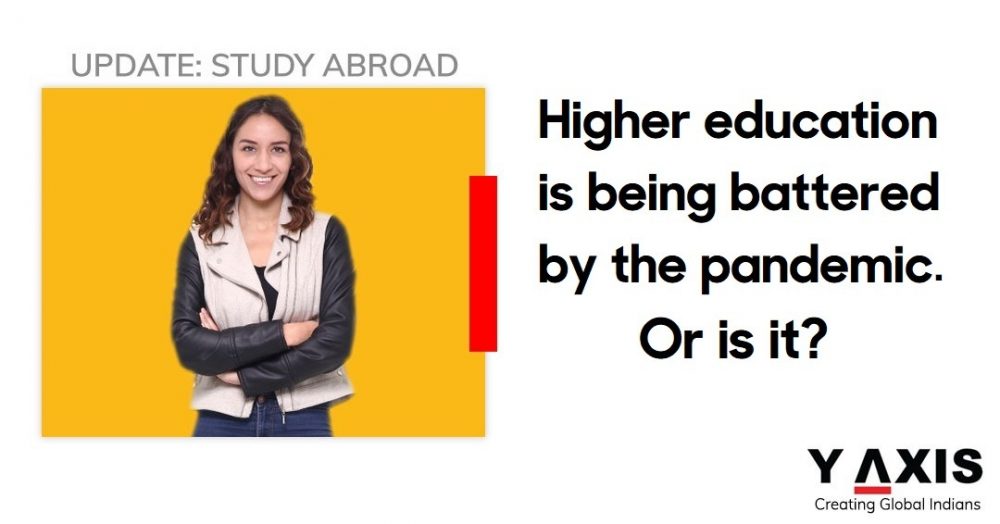
There is no doubt that the Coronavirus pandemic has had an impact on college admissions especially to business schools across the world. According to a Fitch Ratings Group report, college enrolment is expected to go down by 5 to 20% in fall 2020.
The reasons for this include the financial impact of the pandemic on families and their finances and their ability to afford a business school degree. Another reason is that students are still not sure how life on campus would be owing to the restrictions imposed by the pandemic and whether they would be able to experience a normal college life.
Lost revenues
The travel restrictions especially on international travel has had an impact on the revenues of colleges and universities across the world. Universities across Australia have announced the withdrawal of hundreds of courses due to lost revenue devastates higher education.
Surge in MBA applications
In sharp contrast many business schools across the world are seeing a sharp surge in applications.
Some prominent business schools in the US have reported a huge number of applications for their MBA programs. These include the Columbia Business School and the University of Pennsylvania’s Wharton School. This trend is seen across business schools in the U.S. Rice University’s Jones Graduate School of Business had a huge 63% increase in applications during the 2019-2020 admission season. The Darden School of Business belonging to the University of Virginia saw a 25% increase, while applications for the Wharton MBA program has increased by 21%.
Many business schools across Europe have also reported this trend. The University of Oxford’s Saïd Business School, saw a jump of 35% in MBA applications this year compared to previous years. The Imperial College Business School in London saw a 41% increase in full-time MBA applications compared to the previous year while the Warwick Business School saw a 56% increase in admissions.
Though this may sound counter-intuitive considering the negative impact of the pandemic on the economy, experts are not surprised.
Increase in applications
Experts cite the fact that historically a trend has been observed where MBA applications increase when the economy is experiencing a downturn. This is because MBA applicants feel that getting a degree as a chance to get away from a negative job market. The economy and the demand for an MBA degree are often countercyclical. MBA aspirants feel that they have more job prospects when the economy is high which they would miss when attending a business school program. But the idea of taking a career break to refresh one ‘s skills seems like a more appealing proposition when there is a recession.
Another reason is the prospect of unemployment among young people in the current recession. This section of the population feels this is a good opportunity to do a management program that will help them greatly once the economy is back to normal.
The increase in the number of applications during the current pandemic therefore is not a surprising trend. It has been observed in the past as well. Caroline Hoxby, the Scott and Donya Bommer Professor of Economics at Stanford. She recently co-edited a book, How the Financial Crisis and Great Recession Affected Higher Education said that, “…students were more likely to enroll in college and were more likely to stay in college during the Great Recession. This may seem surprising, but actually college-going has increased in every recession since the 1960s. What happens is that the opportunity cost of going to college – the job opportunities a person forgoes while in college – drops very dramatically during recessions. It is harder to find a job, to keep a job or to get a promotion. Thus, some people who would not enroll do enroll. People who would drop out stay enrolled. And people who would have taken some time off between undergraduate and graduate school decide to go straight to graduate school.
In short, even though families may find it more painful to pay for college during a recession because their incomes and home values are stagnant or falling, they do pay for college. This is the sense in which higher education is a counter-cyclical industry.”
Another possible reason is that, over the past five years, the number of applicants at top business schools has decreased, generating a pent-up demand for MBA graduates. In the last two years, MBA admissions dropped by 12.3 percent at the top ten business schools.
The increase in the number of applications is good news for business schools and as they say every cloud has a silver lining. The economic setback due to the pandemic is most likely to benefit business schools across the world even if they have to shift to online teaching or cut costs.



Business school admissions are impacted by the pandemic but in a positive way
Posted on October 6, 2020